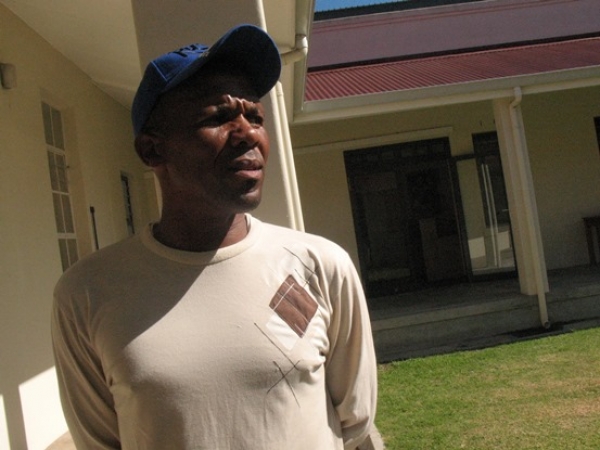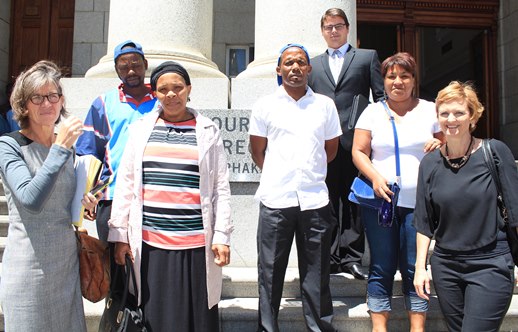Advocacy group takes large credit firm to court over deductions

On Monday, the University of Stellenboch Legal Aid Clinic will take a group of creditors to court in a bid to have alleged illegal emolument attachment orders declared null and void.
Emolument attachment orders (EAO), which are commonly known as “garnishee orders,” are court orders that force your employer to deduct the money you owe to a creditor from your monthly salary.
The action brought by the University of Stellenboch Legal Aid Clinic (LAC) along with 15 consumers is against 13 credit providers and Flemix & Associates, the law firm that facilitates the EAOs.
The LAC will also be challenging the constitutionality of certain sections of the Magistrate’s Court Act.
As a result, the list of respondents in the matter include the Minister of Justice and Correctional Services, the Minister of Trade and Industry and the National Credit Regulator.
The group will be represented in court pro bono by law firm Webber Wentzel.
The hearing, which starts today, will run for a week in the Western Cape High Court.
Jeffrey Haarhof, a 39-year-old security guard who lives in the Kayamandi township in Stellenbosch is one of 15 applicants in the matter.
Nearly a decade ago, Haarhof purchased a R20,000 bedroom set and a telephone from a local furniture shop. However, he lost his job just two months after the purchase and could no longer afford to make the monthly payments. He returned the goods.
“The shop fetched the things and a few months later I received a letter saying I still owed the store R26,000… I had just given the furniture back, so I ignored the letter. In October 2013, a credit collector came to my new [place of] work and gave me a lawyer’s letter. At first, I didn’t want to cooperate, but he threatened me and said that if I didn’t pay I will go to jail,” Haarhof said.
Haarhof claims he made arrangements with the credit collector to make monthly repayments of R250.
“The second time the man came to my work I wasn’t on duty. My manager signed for the documents, but it stated that monthly deductions of R649 must be made, which was not what I had agreed to,” he said.
At the time, Haarhof was earning R3,300 a month, which had to cover all his expenses including paying maintenance for his three young children.
“I used to save. I didn’t budget for so much money to be taken from my account. I couldn’t cope financially. I was forced to skip paying maintenance for one of my three children every month to cover my other payments,” he said.
Haarhof said the EAO reflecting on his credit record could prevent him from further employment opportunities or from making large purchases in the future. “Some jobs ask for criminal and credit checks,” he said.
All deductions from Haarhof’s accounts have been frozen until a ruling is made in the matter.
Financial and Literacy coordinator at LAC Mathilda Rosslee said they made arrangements with the credit collectors soon after Haarhof informed them of his case last year.
“When these stores send the agents to the customer’s work to collect the money, it is to put pressure on people who will do anything to get rid of them. As a result we find people sign documents not fully aware of what they mean.”
Rosslee said they will be challenging the manner in which judgments have been issued against their clients.
“Some EAOs were issued in courts they [clients] didn’t have access to. This also makes it very difficult for us to appear on behalf of our clients if matters are heard in magistrate’s courts far away or in other provinces. The clerk of the court just sees these documents that may look legit and as if the company has followed procedure, when it’s not the case,” she said.
Rosslee said costs of pursuing the EAOs issued far away became very expensive.
“When we challenge the legality of the deductions, litigation is involved which adds more costs as we would then need to hire a correspondent … In terms of Section 1035 National Credit Act those fee amounts are limited compared to the debt incurred during the process,” she said.
Rosslee said many people were unaware of their rights and the correct procedures for EAOs.
“Credit agents are supposed to send a notice to the customer’s employer before visiting their work … the Section 129 letter gives customers a grace period of ten days to respond. This letter can be delivered via post or by hand … Creditors serve the first notice [by hand] together with the consent to payment form, along with the acknowledgment of receipt. Most people don’t know their rights and sign all of the documents without filling in dates or the agreed amount. There are also usually no witnesses to sign. These are some of the aspects we are challenging,” she said.

The Legal Aid Clinic team from the University of Stellenbosch and their clients outside the Cape High Court on Monday. Picture by Masixole Feni.
Support independent journalism
Donate using Payfast

Don't miss out on the latest news
We respect your privacy, and promise we won't spam you.
Next: Sizimisele Technical High School students protest
Previous: A silver lining for the post office?

This article is licensed under a Creative Commons Attribution-NoDerivatives 4.0 International License.
